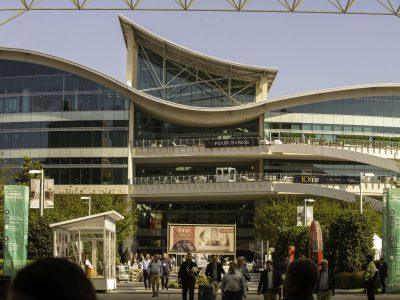Up until a few months ago, Saranda Sturdivant lived in the Salvation Army’s emergency homeless center in north Winston-Salem. The 25-year-old, who was pregnant at the time, said she struggled with finding a job.
“I knew I was smart, but I didn’t know what I wanted to do,” Sturdivant said.
Fast forward to today, and the mother of two is now working as the client-services assistant at Providence Restaurant inside the DoubleTree Hilton off University Parkway. It’s a job that she’s grateful for, not just because it helps pay the rent at her new apartment, but because it’s a symbol of the life-changing experiences she’s had in the last year.
Before landing this job, Sturdivant was part of Providence’s Culinary Training program, an intensive, 13-week, hands-on curriculum that trains those who are unemployed and underemployed in the community.
“It’s a solution-based approach to homelessness and unemployment,” said Jeff Bacon, the executive director of the Providence Restaurant Group, which is comprised of the restaurant, a catering business and soon-to-open farm-to-table spot in the BB&T building downtown.
“The foodservice industry is famously bad at training people,” said Bacon, who founded the program. “Many end up going to expensive culinary schools and then they can’t make enough money to pay back their loans.”
A part of the Second Harvest Food Bank, the school teaches students the skills they need to work in a kitchen, from basic knife skills to catering and sanitation. Students also give back to the food bank by practicing mass-food production and preparing ready-to-heat meals. The program has been around for just over a decade and has graduated more than 600 trainees since its inception. Eleven of those graduates sat in rows of chairs in the DoubleTree’s ballroom on the afternoon of Aug. 3 as they eagerly waited to walk across the stage.
One by one, they were called up by Bacon, who stood behind the podium and handed them certificates.
“You must cheer and hoot and holler,” he said as he began the ceremony.
Men and women from diverse backgrounds and generations graced the stage, as their friends and family cheered them on.
Antonnio Rickard, a 33-year old with a bushy black beard and wide smile, said that he found Providence through Forsyth Tech. After applying and receiving a grant from Goodwill, he says he was accepted into the training program, which normally costs about $400. Tuition for most students are covered by scholarships, according to Bacon.[pullquote]Learn more at providencerestaurantws.com.[/pullquote]
“We’re not just a culinary school,” Bacon said. “We’re a social enterprise model. We’re feeding people who are hungry. Kids in schools, the elderly.”
But for many of the students like Rickard, who plans to open up a wing shop next year, the school marks a new chapter in their lives.
“The last time I graduated was 14 years ago,” said Rickard, as he accepted his certificate. “The dream never died. This is what I love to do.”
And while Rickard has picked a path as an entrepreneur, many from the program go on to work in local restaurants both in and out of the kitchen.
“Our impact with local partners is so deep,” said Tina Faughnan, the director of client services at Providence. “It would be hard to name them all.”
A few include the executive chef at Tanglewood Pizza Kitchen and the manager at the Village Tavern. Most of the staff at Providence are graduates too, and that’s by design according to Faughman.
To ensure students have the opportunity for real-life experience, Providence offers paid residency for top-performing graduates. Of the 14 employees in the Providence kitchen, 12 came from the training program. That’s how Sturdivant got her job, she said.
“It’s so surreal,” said Sturdivant, who helps others like her find the school. “They gave me opportunities I didn’t have before. Now, I just want to give back.”
Join the First Amendment Society, a membership that goes directly to funding TCB‘s newsroom.
We believe that reporting can save the world.
The TCB First Amendment Society recognizes the vital role of a free, unfettered press with a bundling of local experiences designed to build community, and unique engagements with our newsroom that will help you understand, and shape, local journalism’s critical role in uplifting the people in our cities.
All revenue goes directly into the newsroom as reporters’ salaries and freelance commissions.





Leave a Reply